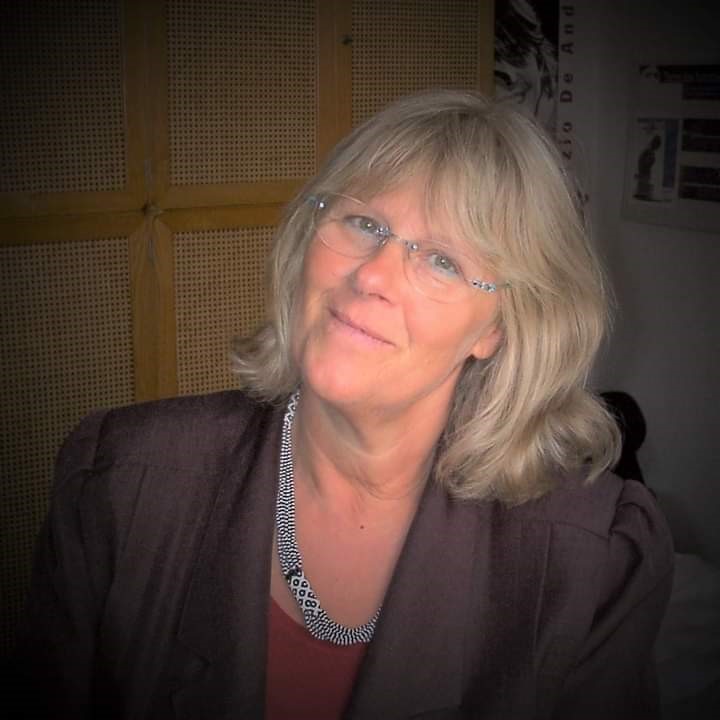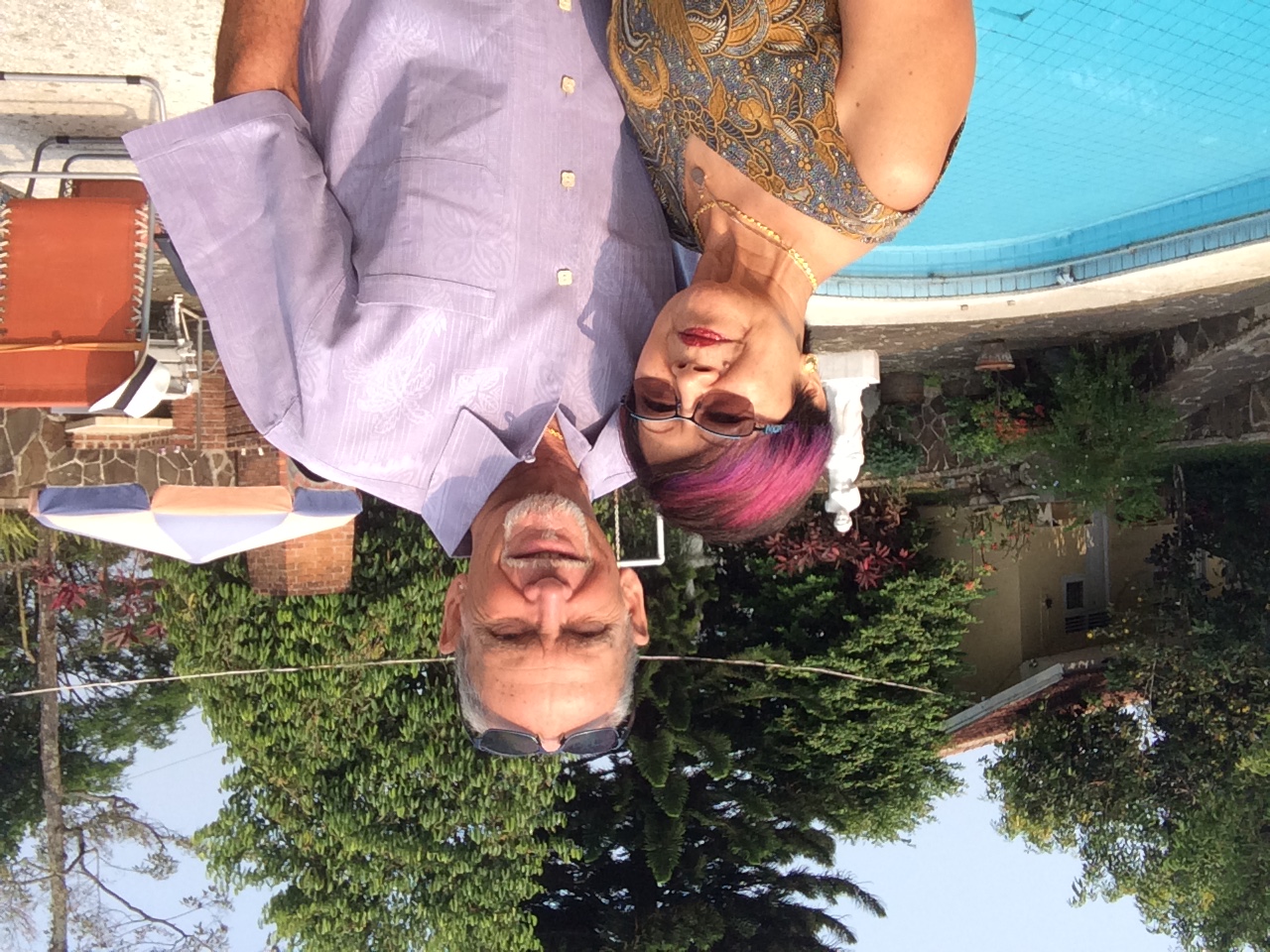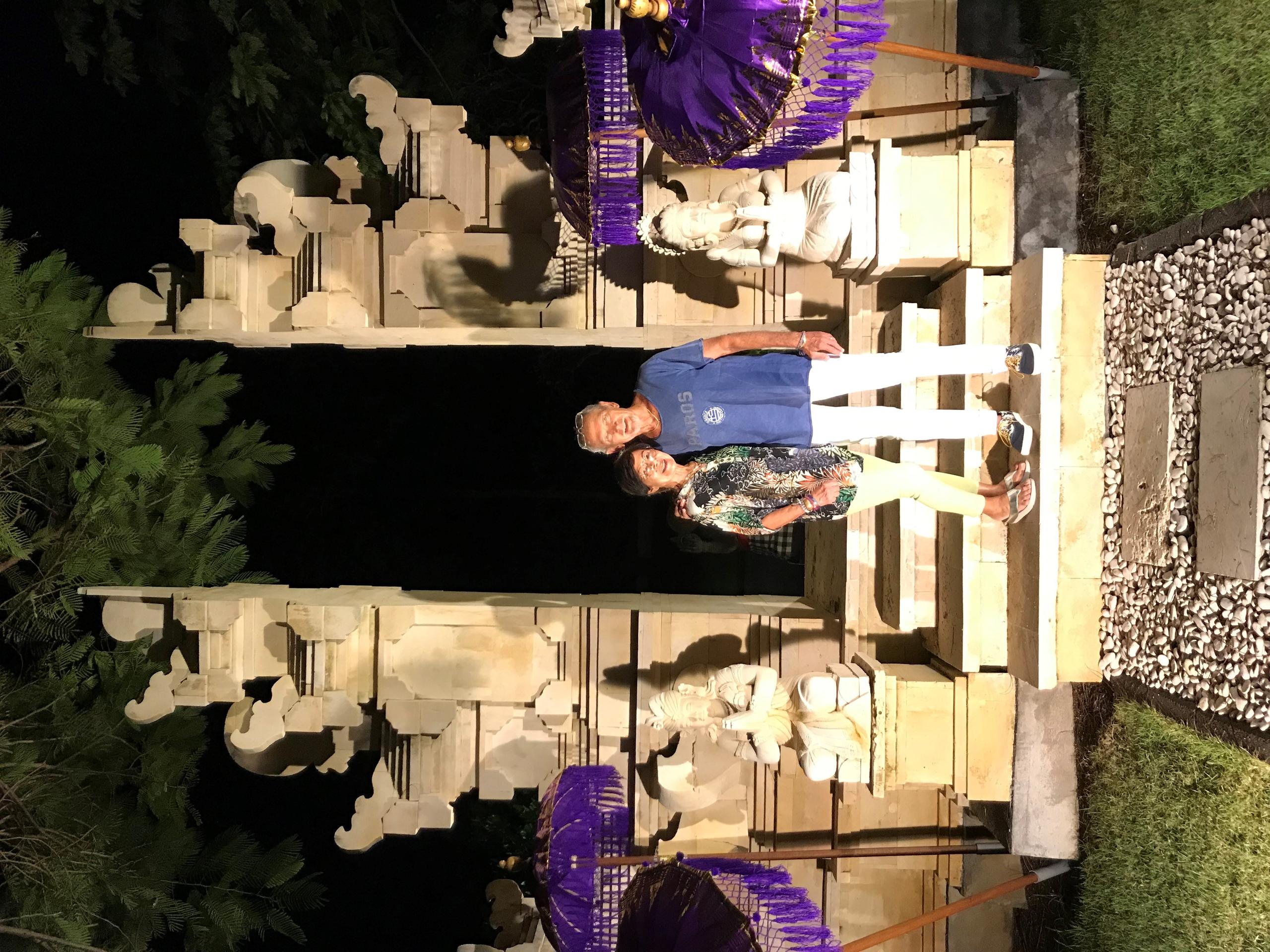
Home sweet home

Each year, more than 20,000 Swiss abroad move back to Switzerland. Some return because they have to, others because they want to. SWI swissinfo.ch talked to two former expats.
Danielle Brocard, 73, recently returned to Switzerland after spending most of her life abroad. Asked if she ever regretted returning to the land of her birth, she responds: “[For] five minutes, not more”.
Brocard left Switzerland before her 18th birthday with a teaching degree in her pocket.
That was in the mid-1960s, the height of the social liberation movement.
“Everything was clean, everything was beautiful in Switzerland. It was too perfect, I was bored,” she says.
Brocard spent her first year abroad in Pisa, before moving to Greece to take up a private teaching position with a family. But in April 1967, the military junta seized power in a coup, and its “dictator colonels” subsequently ordered all foreigners to leave the country within three days.

Thirst for adventure
Brocard decided to move to Israel to volunteer on a kibbutz, but again, history intervened, and the Six-Day War prevented her from carrying through with her plans. She returned to Switzerland for a time, before again leaving to spend a year in London as a nanny.
Raised in a Protestant family with a socialist father, Brocard says she was looking to make sense of her life.
“I told myself that I was on earth to do something, not just to raise a family and have a house,” she says. Keen to continue her adventures, Brocard returned to Italy, settling in Rome. It was there she met the man who would become her life partner.
Finding meaning
The couple had two daughters, and later moved to Genoa for her husband’s job.
“Genoans have a similar mentality to the Swiss,” says Brocard, who first worked as a teacher in a Swiss school and then in a bank. But realizing that her life did not live up to her youthful ideals, Brocard said she came to feel her life was “stupid”.
It was at that point she decided to contact the Swiss charity Terre des Hommes and offered to launch an Italian branch of their organization. Finally, she had found her purpose. Overflowing with energy, Brocard spent more than 20 years campaigning for the organisation.
“[It was] always voluntary,” she says. “I worked at the bank [but] Terre des Hommes was for the community.”

Returning to Switzerland
By 2013, and with her adult children living abroad — one in Switzerland, one in Germany — Brocard decided to retire.
“I began to wonder what we were going to do alone together in Genoa,” says Brocard. The decision to return to Switzerland to live in Lausanne came gradually, after a year or two of reflection.
Laughing, Brocard says her husband had less trouble integrating into Switzerland than she did.
“I had always missed the mountains and the snow,” she says. “[But] it took a while for me to detach myself from Italy.”
That said, at 73 she can now see the positive side to some aspects of Swiss life that annoyed her when she was young.
More
“Everything is so much easier here than in Italy. I had forgotten just how exceptional it was that everything works,” she says. In financial terms, however, Brocard has had to learn to “give up many things”, because “even though we have never just thrown money away”, life in Switzerland is expensive for a couple on Italian pensions, no matter how good they are.
Not having maintained a base in Italy, Brocard now returns as a tourist, and “it’s brilliant”, she says.
Of the 770,900 Swiss citizens who lived abroad in 2019, 23,965 have chosen to end move back home. Their reasons for returning are largely undocumented. The Federal Department of Foreign Affairs (FDFA) and the Organisation for the Swiss Abroad (OSA) offer differing hypotheses. The OSA suggests that the quality of the Swiss health system and insurance cover, economic crises, and the absence of economic prospects abroad — as well as stays of limited duration (professional secondment) — are the most likely reasons for the Swiss to return home. But the OSA also notes that it “is not able to communicate precise reasons based on substantiated data”.
Asia, obviously
Having lived in Asia for 40 years — first in Thailand, then in Singapore — Phil Guinand, 74, decided to return to Switzerland when he retired.
For Guinand, the desire to travel was in his genes. Born in India to Swiss parents, he spent his youth moving between the country of his birth, South America and Africa. Upon returning to Switzerland in 1964, he met his future wife, an Indonesian who was studying in French-speaking Switzerland. But quickly, “I wanted to leave again, I was bored,” he says.
After two jobs in the Swiss pharmaceutical industry, Guinand landed the job of his dreams working for a Swiss company in Thailand. The family, which by then included two children, left for the Country of Smiles in 1971.

But in 1999, Asia was hit hard by economic crisis, causing Guinand to lose his job. Unemployed for a year, he decided to bring his family back to Switzerland.
“It was hard to find myself faced with the reality of age and working life in Switzerland,” he says. Whereas youth is prized in the West, “seniority is important in Asia”.
In the end, he landed a job with a pharmaceutical company in St Gallen, covering southeast Asia and the Pacific from Switzerland. But after two years, the constant travelling had exhausted him, leading him to suggest the company open an office in Singapore.
“At a certain age, Singapore was a good compromise, but it is not really Asia,” he says.
“Asia is not what it once was”
Upon retirement, Guinand and his wife decided to move to Indonesia, the country of her birth. However, they quickly realized that the quality of life there, with its pollution and congestion, was not for them.
Returning to Switzerland became an obvious choice.
“We didn’t want to adapt to a new country in Asia. It seemed simpler to return to Switzerland,” says Guinand. “That’s perhaps because we had never really lived in Switzerland; in the end, it was also a discovery.”
For Guinand, there is a sadness that different places around the world are becoming more homogenous.
“When we left, most Asian countries were still developing. Today, globalisation has made the differences less pronounced. The adventurous spirit that reigned no longer exists,” he says.

Acclimatisation
Like Brocard, Guinand has had to adapt to his new life in Switzerland. Having spent most of his life amongst other cultures “you no longer have the same values as people here and vice-versa”, he says. But now he also appreciates aspects of life in Switzerland that he disliked in his youth.
“Switzerland’s peace and security can be boring, but there is also value to it,” he says.
He is also happy that “Switzerland has evolved in the right direction”. He says the country is much more open than it was, and one can now find everything in the stores “which was not the case 40 years ago”.

In compliance with the JTI standards
More: SWI swissinfo.ch certified by the Journalism Trust Initiative






























Join the conversation!